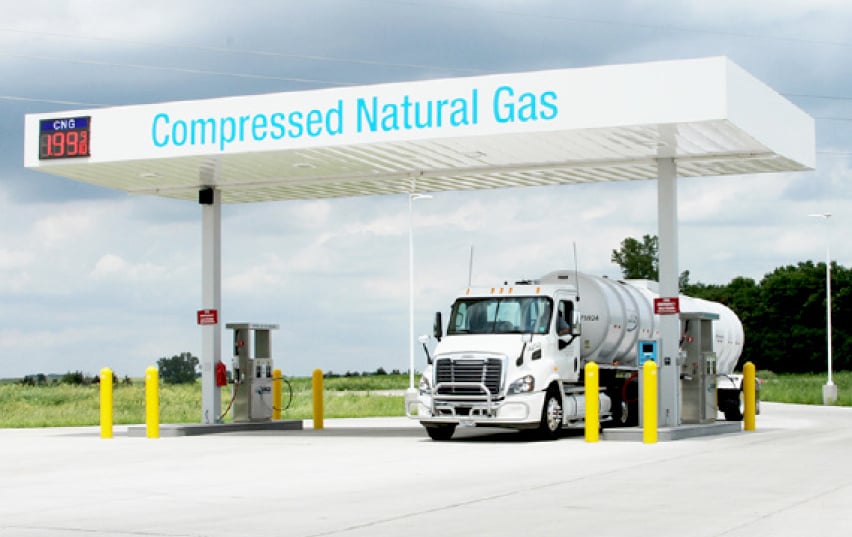
Are there alternatives to petrol in Nigeria?
Author Eyitemi Efole
Nigeria's economy has long been heavily reliant on petrol, with fossil fuels accounting for a significant portion of the country's energy consumption. As Africa’s largest oil producer, Nigeria’s energy needs are primarily met by petrol, but this dependence presents serious issues. Rising fuel prices, environmental concerns from carbon emissions, and fears of future shortages due to global energy shifts have sparked debates on alternative fuel sources.
The problem is twofold: not only is petrol becoming less economically viable as global oil prices fluctuate, but environmental degradation and climate change are also linked to the overuse of fossil fuels. As the world moves toward cleaner energy, Nigeria risks falling behind if it remains stuck in its petrol-dependent ways.
This post will explore several alternatives to petrol in Nigeria—biofuels, electric vehicles (EVs), compressed natural gas (CNG), and other renewable sources such as solar and wind. These alternatives hold the potential to solve Nigeria’s pressing fuel problems while promoting a more sustainable future.
Biofuels as a Potential Alternative
Biofuels, which include ethanol and biodiesel, are made from organic materials like crops, agricultural waste, or even algae. Nigeria's agricultural sector provides a vast resource base for the production of biofuels, especially considering its abundant land for cultivating crops like sugarcane and cassava, which can be used in ethanol production.
Benefits of Biofuels
● Sustainability: Biofuels are renewable and reduce carbon emissions compared to fossil fuels.
● Economic diversification: Investing in biofuels could boost Nigeria's agricultural sector and create new jobs.
However, biofuels present some challenges
For instance, high production costs and the need for advanced technology can make widespread adoption difficult. Also, using food crops for biofuels raises concerns about food security, especially in Nigeria where food supply can be inconsistent.
In terms of global examples, Brazil has successfully adopted ethanol as a major fuel source, providing a potential model for Nigeria. With government support, Nigeria could tap into this energy source to lessen its dependence on petrol.
Electric Vehicles: A Promising Option
Electric vehicles (EVs) offer a cleaner, more sustainable alternative to petrol-powered cars. These vehicles run on batteries, which can be charged using electricity from renewable sources. Global giants like Tesla and local companies are working to make EVs more affordable and accessible.
Infrastructure Needs for EVs in Nigeria
● Charging stations: The country would need a robust network of EV charging stations, especially along major highways.
● Stable electricity supply: With Nigeria's persistent power supply issues, reliable electricity is crucial for the widespread adoption of EVs.
Government Incentives
Several countries have successfully rolled out subsidies, tax breaks, and incentives to encourage EV adoption. Nigeria could follow suit by offering incentives for EV buyers or for companies developing the required infrastructure.
While electric vehicles hold promise, the lack of charging infrastructure and Nigeria's erratic power supply are significant hurdles. However, if these challenges are addressed, EVs could reduce carbon emissions and improve air quality, especially in urban areas.
Natural Gas: A Cleaner Alternative
Nigeria boasts one of the largest natural gas reserves in the world, making it a viable alternative to petrol. Natural gas can be used in transportation and power generation, offering a cleaner and more environmentally friendly option compared to petrol.
Environmental Benefits:
Natural gas emits significantly less carbon dioxide than petrol, making it a better option for reducing greenhouse gases.
CNG as a Viable Alternative
Compressed natural gas (CNG) is a form of natural gas that has been compressed to a smaller volume, making it suitable for use in vehicles. CNG vehicles produce lower emissions, are cost-effective, and rely on Nigeria’s abundant natural gas reserves.
Challenges with CNG include the cost of developing refueling infrastructure and retrofitting existing vehicles to run on CNG. However, the Nigerian government is pushing for CNG adoption with various initiatives aimed at reducing fuel imports and promoting cleaner energy.
Other Potential Alternatives
- Solar and Wind Energy: While not traditionally used for vehicles, renewable sources like solar and wind can support electricity generation for EVs and other sectors.
- Hydrogen Fuel Cells: Hydrogen fuel cells are gaining attention globally as a clean, zero-emission energy source. However, this technology is still in its infancy in Nigeria.
- Hybrid Vehicles: Hybrid vehicles, which combine traditional internal combustion engines with electric motors, offer a transitional option for Nigerians still reliant on petrol. These vehicles provide better fuel efficiency while reducing overall emissions
Conclusion
In summary, Nigeria has several potential alternatives to petrol, including biofuels, electric vehicles, CNG, and renewable energy sources like solar and wind.
While each option has its challenges, the benefits—such as reduced emissions, lower fuel costs, and the potential for economic diversification—are significant. To achieve meaningful change, government policies will play a critical role. Investments in infrastructure, incentives for consumers and businesses, and collaborations between the public and private sectors will be necessary to drive adoption.
The future of transportation in Nigeria could see a significant shift away from petrol if these alternatives are embraced. By taking steps now, Nigeria can reduce its environmental footprint and ensure a more sustainable energy future.
Therefore, grasping these changes enables Nigerians to make well-informed financial choices, such as selecting the appropriate investment or refinancing current debt. In Nigeria, where economic conditions can be unpredictable, adapting to monetary policy shifts is not just wise but essential for maintaining financial health.
About Author

Eyitemi Efole
Eyitemi Efole is exploring the marketing field, with a particular interest in brand management, strategy, and operations. She is keen on understanding how brands build trust and connect meaningfully with their audience.
.png?width=1615&height=444&name=nairaCompare%20Christmas%20logo%20(PNG).png)






.jpg?width=352&name=What%20is%20Forex%202%20(1).jpg)

